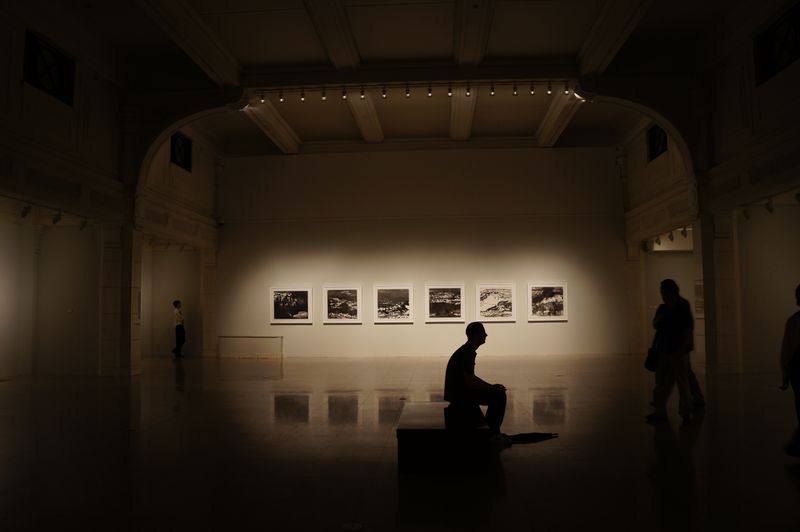David Hunter: British expat guilty of Cyprus mercy killing freed – as daughter says she is ‘stunned’ and ‘elated’
The Case
In a controversial case that has captured international attention, British expat David Hunter, 76, has been released from prison in Cyprus after being found guilty of a mercy killing. Hunter’s wife, Janice Hunter, 74, died of asphyxiation at their retirement home near Paphos in December 2021. While David admitted to killing his wife, he denied the charge of murder. Despite being sentenced to two years in prison, Hunter has been released today due to the time he has already served behind bars.
A Tragic and Contentious Event
The circumstances surrounding the death of Janice Hunter and the subsequent legal process have raised significant moral and ethical questions. The concept of mercy killing, or euthanasia, is a contentious and deeply personal issue that societies around the world continue to grapple with. While it remains illegal in many countries, some have legalized certain forms of euthanasia under strict regulations.
The Balance of Justice
The case of David Hunter exposes the challenges in balancing justice and compassion in end-of-life situations. Hunter’s claim of a mercy killing suggests that he acted out of compassion and a desire to end his wife’s suffering. However, the legality and ethical implications of such actions remain complex and subject to interpretation.
Legal Considerations
The legal system in Cyprus, like in many other countries, views taking another person’s life as an inherently criminal act. Despite David Hunter’s argument of a mercy killing, the court found him guilty of the crime. However, Hunter’s release after serving a reduced sentence raises questions about the adequacy of the legal framework in dealing with cases of this nature. It also highlights the need for societies to have nuanced discussions about euthanasia and consider compassionate alternatives.
Emotional Toll
The Hunter family’s experience encapsulates the emotions and conflicts faced by many individuals and families who are confronted with terminal illness and the desire for a dignified death. Janice Hunter’s daughter’s reaction of being both ‘stunned’ and ‘elated’ at her father’s release underscores the complex nature of emotions that arise in such situations.
The Larger Debate
This case brings to the forefront a larger debate about the boundaries of individual autonomy, the role of the state in end-of-life decisions, and the potential for legalizing euthanasia in certain circumstances. Advocates for euthanasia argue that individuals should have the right to end their own lives or have assistance in doing so when faced with unbearable pain and suffering. Opponents, on the other hand, emphasize the sanctity of life and warn against the potential for abuse or the slippery slope of expanding euthanasia laws.
Compassionate Alternatives
While some argue for the legalization of euthanasia, it is important to consider alternative approaches that prioritize compassionate end-of-life care. Palliative care and hospice services aim to provide support and pain management for individuals facing terminal illnesses, ensuring their comfort and dignity until the end.
Addressing the Complexity
The case of David Hunter highlights the need for societies to engage in in-depth discussions and debates on euthanasia and end-of-life choices. These conversations must include perspectives from medical, legal, ethical, and philosophical standpoints. By fostering a comprehensive understanding of the complex issues at play, societies can work towards developing compassionate and well-informed policies that respect individual autonomy while also protecting vulnerable populations from potential harm.
Editorial
Reevaluating Our Approach to Euthanasia
The case of David Hunter illustrates the profound challenges surrounding euthanasia and the urgent need for societies to reevaluate their approach to end-of-life decisions. Rather than relying solely on punitive measures, it is imperative to develop frameworks that incorporate both justice and compassion.
A Humanitarian Approach
Advancing towards a more humanitarian approach to euthanasia requires an open and honest dialogue. Society must confront the moral nuances and difficult scenarios that arise when individuals consider ending their lives due to unbearable pain or terminal illness. By fostering empathy and understanding, we can develop policies that strike a balance between protecting the sanctity of life and respecting individual autonomy.
Protecting Vulnerable Populations
While legalizing euthanasia in certain circumstances may be a valid option, it is essential to implement safeguards to protect vulnerable populations. Robust regulations and oversight mechanisms must be in place to guard against any potential abuse or coercion. The experiences and perspectives of medical professionals, ethicists, and legal experts should be taken into account when formulating comprehensive and compassionate end-of-life policies.
Advice
Informing End-of-Life Decision Making
Individuals and families facing end-of-life decisions should seek information and support from medical professionals and organizations specializing in palliative care. Understanding the available options for pain management, emotional support, and dignified care can help individuals make informed choices that align with their values and priorities.
Seeking Legal Counsel
In cases where individuals or their loved ones are considering non-legal end-of-life options, it is advisable to seek legal counsel to understand the legal implications and potential consequences involved. Consulting with legal experts can help navigate the complex legal landscape and ensure that decisions are made within the boundaries of the law.
Engaging in Conversations
Engaging in open and compassionate conversations with family members, friends, and healthcare professionals can provide emotional support and clarity during difficult times. These discussions can help individuals explore their options, voice their desires, and ensure that their wishes are respected in the event of incapacity.
Advocating for Change
Individuals who feel strongly about the need for more compassionate end-of-life policies should consider advocating for change. Engaging in public debates, supporting organizations working on end-of-life issues, and participating in community discussions can contribute to shaping a more compassionate and just approach to end-of-life decision-making.
In conclusion, the case of David Hunter’s release after being found guilty of a mercy killing in Cyprus highlights the moral, ethical, and legal complexities surrounding end-of-life decisions. It sparks a broader conversation about euthanasia and the need for societies to have open and informed discussions while considering compassionate alternatives. Balancing justice, autonomy, and the protection of vulnerable populations is essential in developing comprehensive and well-informed end-of-life policies.

<< photo by Reinaldo >>
The image is for illustrative purposes only and does not depict the actual situation.
You might want to read !
- David Hunter: The Release of the British Husband Who Killed His Wife in Cyprus
- “The Dark Side of the Sunshine Millionaire: Unveiling the Exploitative Scheme that Drained £130m from Britain”
- “The Resilience of Katie Archibald: Confronting Grief and Overcoming Adversity”
- No Wrongdoing Found: Teenager Clears BBC Presenter in Controversial Case
- UFO Hearing Key Takeaways: Exposing the Cover-up or Dismissing the Denials?
- True Crime: Unveiling the Grisly Demise of Lucie Blackman
- “Unmasking Joji Obara: Unraveling the Enigmatic Figure Behind the Lucie Blackman Case”
- “Unraveling the Dark Secrets of Wolf: A Compelling yet Troubling BBC One Series”
- Tragic Loss: Reflecting on the Untimely Death of Euphoria Star Angus Cloud
- “Unleashing the Unbelievable: Exploring the Thrills of Wolf”




